Think Wrights, think pies, right? The business is synonymous with them thanks, in part, to the fact that its first-ever product was a meat & potato pie – an item which is still baked to this day.
But Wrights is so much more than a pie maker. In its Cheshire heartland, it is a well-known and loved brand serving up hearty pies, finger doughnuts, and sausage rolls through its network of 15 shops as well as lunch vans.
Away from Cheshire, many consumers will have likely tucked into a Wrights product without knowing as the business has a strong foothold in several markets including wholesale, airlines, and football stadiums to name a few.

The firm is hoping to build on this as it expands its reach in the UK – a move aided by owner The Compleat Food Group. Compleat was formed in 2021 when Addo Food Group and Winterbotham Derby joined forces under their private equity owner PAI Partners, with Wrights coming on board at the end of that year and further brands joining the fold in 2024.
Just over two years post-acquisition and it’s full steam ahead at the Wrights site in Crewe from which the manufacturer produces a wide range of savoury pastries, sweet treats, and ready meals.
There is a desire for Wrights to become a household brand
“We’re part of a larger group, but we’ve still got the same ethos, the same focus, the same mission,” commercial director Helen Bowyer tells British Baker. “I spent 13 years with Wrights as a privately owned business and now, to be two years into this, you can see that it is a true transition and we’re still getting the same focus, investment, and support as we did as a privately owned business.”
There are other benefits to being part of Compleat including learning opportunities from stablemate Wall’s. The two are “complementary” as they sit at different tiers in the savoury pastry category, Bowyer says. “It’s nice to have another savoury pastry business as the insight and knowledge that they have from a retail chilled perspective is beneficial to utilise across the business,” she explains, “particularly as the link between retail and foodservice is much closer than it ever used to be.”
Wrights is intending to blur the lines even further as Bowyer reveals an ambition to take the brand into retail. “There is a desire for Wrights to become a household brand,” she says. “It isn’t about taking away from our other channels. It’s about taking the brand position, quality, ethos, and pride that we have into the retail arena.”
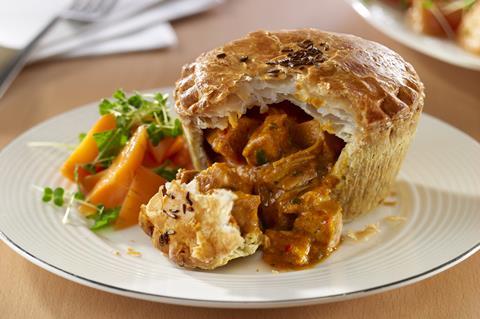
Wrights ran a trial during British Pie Week 2023 with its Chicken Balti Pies, which made an exclusive, limited run appearance in Tesco chiller cabinets. The pies combine a unique naan bread-inspired pastry base and cumin seed-garnished puff pastry lid with a balti curry filling.
“The trial was a test bed to see is the Wrights brand resonated outside of the regional position. As much as we are a well known and loved brand nationally from a B2B perspective, it’s more regional from an end consumer perspective,” Bowyer says. “We saw 90% incrementality for them for sales as it was bringing a different demographic into that shelf space.”
An appetite for the sweet life
Another area ripe for growth is sweet bakery which Bowyer describes as “still relatively small” for Wrights but with “a lot of scope to go after”. Although a historical part of the Wrights business, albeit predominantly as a supplier to its own shops, sweet bakery operations have built up slowly over time. A move to a purpose-built factory eight years ago also helped to unlock opportunities when sweet bakery production was moved from its original site in Crewe to the current one (also in Crewe) which is next to its savoury factory.
We’re keeping our independent bakery roots by doing what we’re doing but with a level of automation to it
Sweet currently accounts for around 20% of turnover at Wrights. Inroads have been made in key areas such as cookies and doughnuts, with a £1m investment in a second drum spiral freezer in 2022 supporting this. Wrights has been smart about where its skills lie as Bowyer notes that it isn’t going to compete against the likes of Dawn Foods and other major players on muffins, for example.

“We’ve popped up where we want to pop up in sweet bakery,” she adds. “It isn’t about highly automating and feeding the mass market. That probably dictates more of a time-lined growth than if we just fully invested in automation as the big players would do. We’re keeping our independent bakery roots by doing what we’re doing with a level of automation to it.”
Maintaining a measure of hands-on production also allows for more flexibility than its larger rivals, which Bowyer describes as Wrights’ “niche spot”, working for customers in wholesale, end user, and retail. “We can do a semi-finished product, a fully finished product, and components,” she says, highlighting how scratch baking has been removed from several of the supermarkets and securing labour a continual challenge. This “will drive more into semi-finished and fully finished products”.
Visual appeal is a key part of the sweet bakery experience to entice consumers into making an impulse purchase. “If it just looks like a bog-standard brownie, people will think it’s a bog-standard brownie,” Bowyer explains. Adding value is an important part of this journey, whether done in the factory or on the shop floor, but that doesn’t mean innovation has to be wacky.
One of Wrights biggest successes is the Chocolate Flake Cake – an enrobed cake with a flake placed on top. It started off as a baked good for its shops, which provided a “great development test bed”, before being rolled out to other parts of the Wrights customer base.
Savouring the growth
This growth feeds into the Wrights mission, which is split into three pillars – grow, optimise, and collaborate. These include playing to its strengths and leveraging successes to grow, optimising the product and margin mix as well as ensuring the right routes to market, and collaborating across the supply chain, with customers, and the wider Compleat group.
“It’s about sustainable growth for the business. We’ve seen double-digit growth for many years at Wrights, and it’s all about building those relationships. It isn’t just about throw away business.”
The value proposition also plays an important role here, as Bowyer insists Wrights isn’t about lowering quality to meet a certain price point. As such, costs and prices have gone up which “may impact volumes sometimes, but what we don’t want to do is devalue the brand position”.
Having a wide portfolio and range of markets to play in offers some protection and also presents opportunities. Foodservice wholesale currently accounts for around half of Wrights Crewe business, with foodservice end user and airline accounting for a further 20%. End user – which includes coffee shops, high street restaurants, pub groups, forecourts, and QSR – is providing the most lucrative growth at the moment.
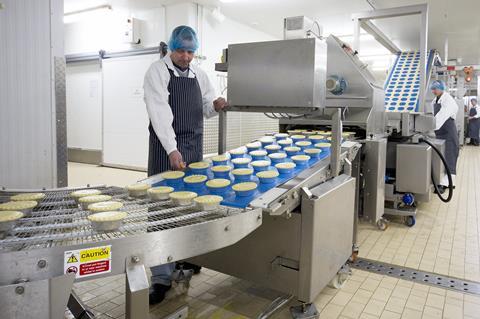
With cost high on the agenda, Bowyer notes a shift in demand for certain types of product. “The briefs aren’t all plant-based anymore,” she says. While she expects this to bounce back once the cost-of-living crisis lessens, she anticipates that vegetable-based products will be more in demand than those utilising meat mimics. Why? “Meat mimics are expensive, so actual protein is cheaper… People who are not vegan don’t want to be paying more for it than a meat-based product.”
Formats are also important. Sausage rolls are one of Wrights biggest lines and “always stand relatively firm”, but impressive growth has come from pasties and slices in food to go as they offer a cost-effective lunch or snack option for shoppers.
“There’s is so much still that we can do, across all categories,” Bowyer concludes. “It’s nice to have the backing of the wider business – you know the investment is there and the support is there. We are able to be a lot stronger and give a lot more to our customers. And, at the end of the day, we want them to grow, which in turn helps us to grow as well.”



















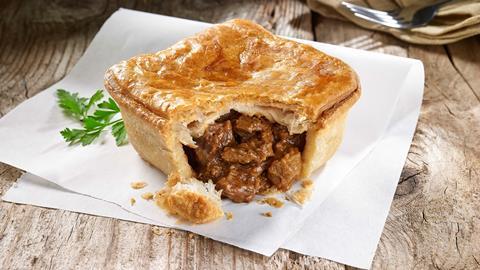
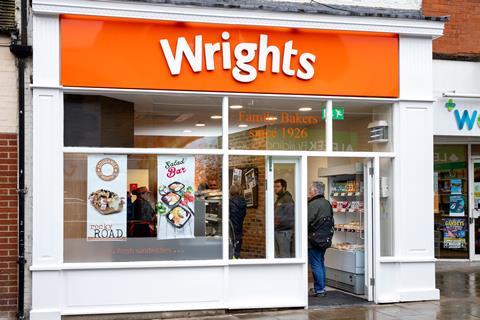
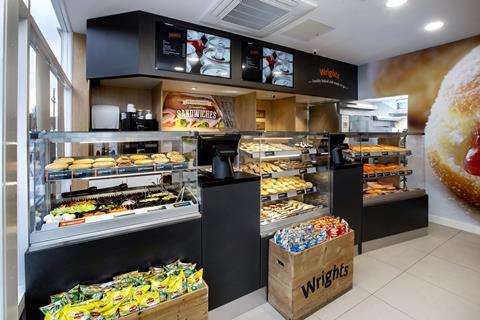
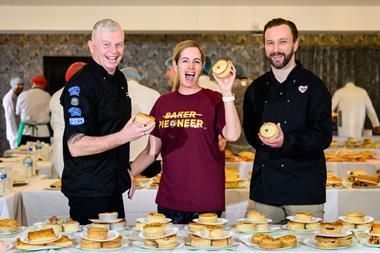
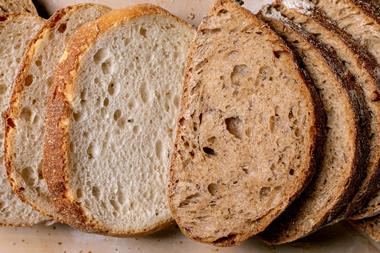
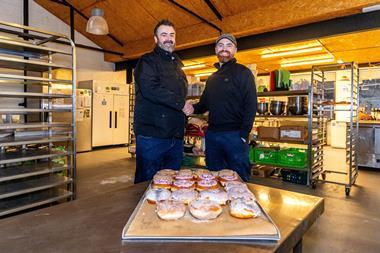
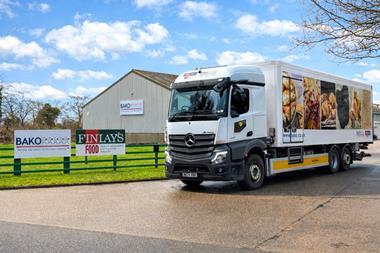
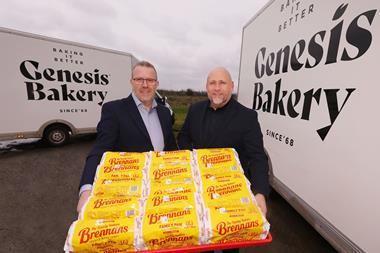
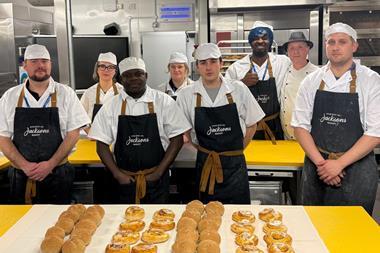


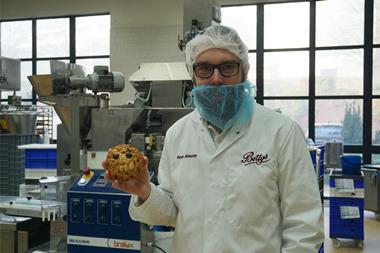

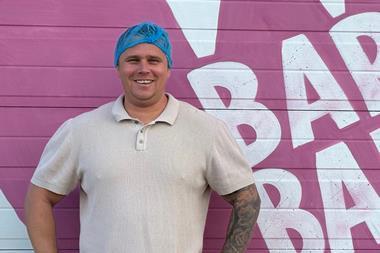
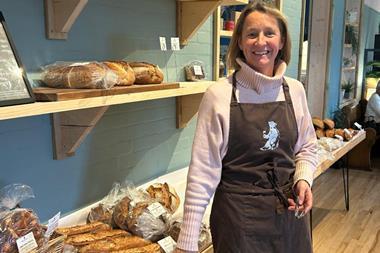

No comments yet